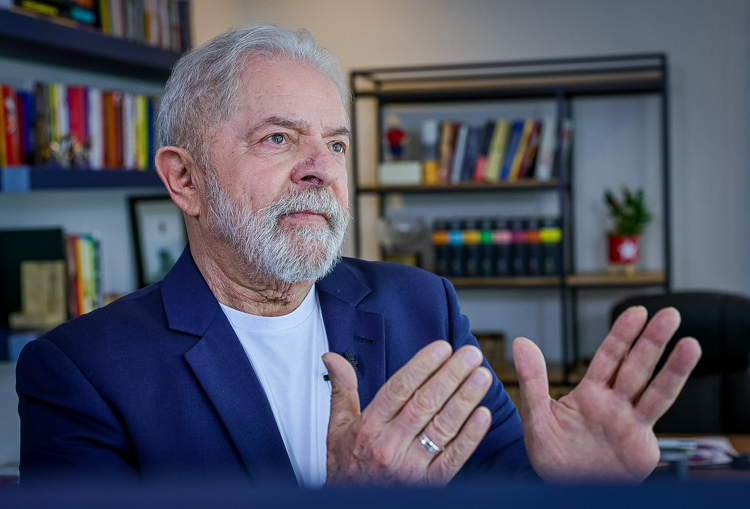Ricardo Stockert
Lola
No country has succeeded in developing fully without implementing state policies for education, science, and technology (S&T). Education is a gateway to better quality jobs at higher wages, expanding opportunities and enabling more equitable economic development.
The mastery of science and technology on a large scale is a necessary condition for making companies globally competitive, increasing wealth and strengthening the sovereignty of nations.
The most prominent recent example of a country that has used education, science and technology to change the course of its history is China. At the turn of the century, the state invested $40 billion in science and technology, while investments in the United States amounted to $300 billion. China has implemented the state policy for the development of science, within the scope of a super ministry, and today it invests more than 400 billion dollars in science and technology. It was no coincidence, as Folha reported on December 26, that China’s scientific output in 2021 surpassed that of the United States, which for decades was the largest in the world.
As a result of this effort, in addition to expanding the production of manufactured goods, China has developed a vast and competitive industrial zone, with interaction programs with the research system. A good example is the 5G technology for digital communications, which it developed before the industrial powers.. Thus, the country’s GDP, which at the turn of the century amounted to 1.2 trillion US dollars, the sixth in the world, now exceeds 15 trillion US dollars, after only the United States.
In 2020, China announced 22 strategic initiatives in science and technology to modernize by 2050. Interestingly, among them are nine strategic areas of the Action Plan for Science, Technology and Innovation (PACTI), which we implemented in Brazil between 2007 and 2010: Biotechnology, Nanotechnology, information technologies, health inputs, clean energy, biodiversity, climate change, space program, national defense and public security.
These were the elements of one of the four priorities of the plan, to which were added: the expansion and consolidation of the national system of science, technology and innovation, the promotion of technological innovation in enterprises, and science and technology for social development. To finance the 87 PACTI programs, it was necessary to apply, without restrictions, the resources of the Scientific and Technological Development Fund, made up of corporate revenues in various sectors, which allowed to invest about R$65 billion in current values. .
In recent years, there has been an unprecedented setback in the country’s science and technology policies. The dismantling of public institutions, in the direction of a minimal state, is a sign of a government deepening the neoliberal agenda and an unrealistic fiscal adjustment. We are going in the opposite direction from China and other countries.
We have exceeded the worst expectations, we are heading towards obscurantism, under a government that denies science in every one of its actions.
The willful and criminal disregard for public health is the most visible and ruthless facet of this aversion to knowledge, which has already led to the loss of nearly 620,000 lives to Covid-19. Fortunately, we are witnessing the tremendous effort and commitment of the Brazilian scientific community, in search of solutions to the very serious health crisis. We are witnessing the swift response of SUS, which has survived attempts at dismantling, and its brave professionals on the front lines against the pandemic.
The next government will face the formidable challenge of resuming economic growth, creating jobs, overcoming poverty, and reducing inequality. It will almost certainly depend on the commitment of our scientific community, which has made Brazil the 13th largest producer of science in the world, Fulha also mentioned. It will be necessary to re-establish a science, technology and information policy and plan, restore federal agencies and provide adequate budgets, in a joint effort by the state and businesses.
The example of other countries, our own achievements, and the bitter setback we suffered leave no room for doubt: education and science are essential to the reconstruction and future of Brazil.
Luiz Inacio Lula da Silva
Former President of the Republic (2003-2010) and Honorary Chairman of the Workers’ Party
Sergio Machado Resende
Doctor of Electronic Engineering and Materials Science, Professor at the Federal University of Pernambuco and former Minister of Science and Technology (2005-10)
The article was originally published in Folha de S. Paulo.

“Hardcore beer fanatic. Falls down a lot. Professional coffee fan. Music ninja.”

![[VÍDEO] Elton John’s final show in the UK has the crowd moving](https://www.tupi.fm/wp-content/uploads/2023/06/Elton-John-1-690x600.jpg)




More Stories
The Director of Ibict receives the Coordinator of CESU-PI – Brazilian Institute for Information in Science and Technology
A doctor who spreads fake news about breast cancer is registered with the CRM of Minas
The program offers scholarships to women in the field of science and technology